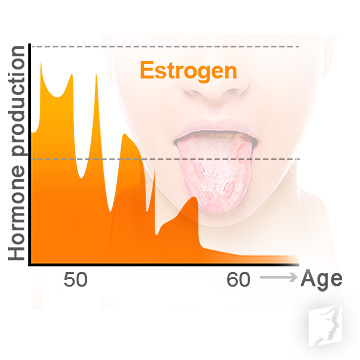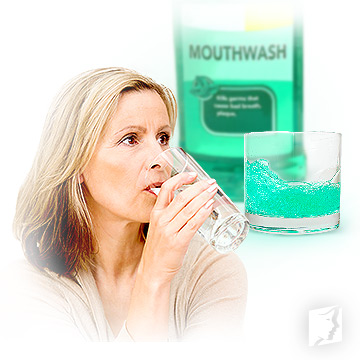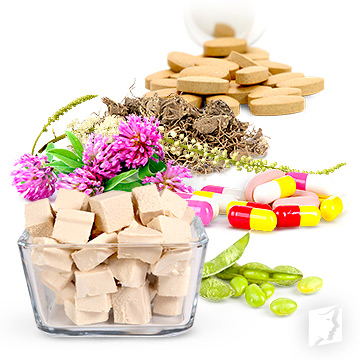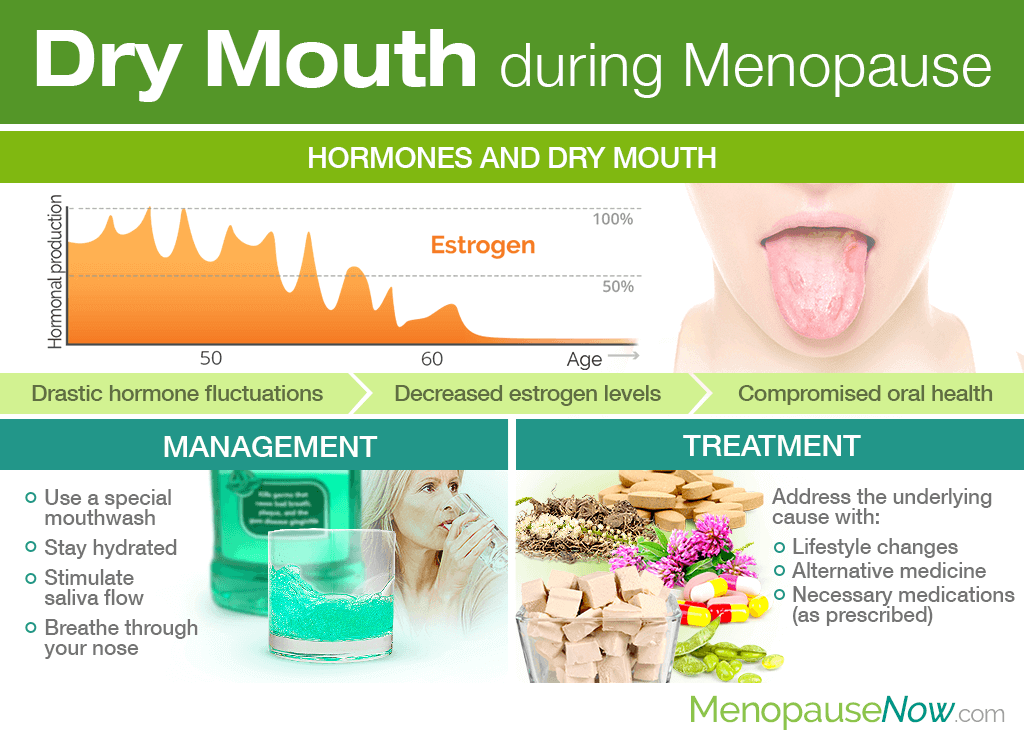Women passing through perimenopause - also known colloquially as the menopausal transition - are all too familiar with the numerous symptoms that can start popping up. Accordingly, it may come as no surprise to them to know that menopause and dry mouth can also go hand in hand.
Continue reading to learn all about menopause and dry mouth, including how hormones and dry mouth are connected and what you can do today for optimal oral comfort.
The Link between Hormones and Dry Mouth

Menopause is characterized by drastic hormonal fluctuations as the ovaries prepare for their grand finale. The principal sex hormones affected are estrogen and progesterone, both of which are mainly produced by the reproductive organs.
Throughout women's reproductive lives, estrogen contributes to oral health. As a matter of fact, estrogen hormone receptors have been found in oral mucosa and salivary glands. This oral mucosa responds to estrogen similar to how vaginal mucosa does.
Accordingly, as women age and estrogen levels decrease, oral health is compromised, leading to a variety of dental problems, such as burning tongue, periodontitis, taste alterations, atrophic gingivitis, dry mouth, and more.
As such, it can be said that low estrogen causes dry mouth during perimenopause.
Managing Dry Mouth during Menopause

The following techniques can be used for relieving perimenopause dry mouth temporarily:
Add moisture to the air at night. This can be done with a humidifier and will prevent your mouth from becoming dryer.
Use a special mouthwash. Mouthwashes designed to combat dry mouth doesn't contain alcohol and also offer protection against tooth decay, an added bonus for menopausal women.
Limit caffeine intake. Caffeine can make a dry mouth even drier. Also, regulating caffeine intake will promote endocrine system health since its excessive consumption can increase cortisol levels.
Stay hydrated. This may seem like a no-brainer, but sipping water or ice cubes regularly can help women tackle perimenopause and dry mouth together.
Quit tobacco. Smoking cigarettes or consuming other products with tobacco slows down how quickly your mouth produces saliva, thus irritating or even leading to dry mouth.
Stimulate saliva flow. This can be done by chewing sugar-free gum or sucking on sugar-free candies. Sugar-free is important as it will help prevent further tooth decay.
Breathe through your nose. Breathing - and even snoring - through your mouth can cause your saliva to evaporate, thus aggravating dry mouth.
Treating Dry Mouth during Menopause

While aforementioned management tips will help bring momentary relief, the best long-term dry mouth remedy comes with addressing the cause. For menopausal women, this cause is generally hormonal imbalance.
Natural and effective dry mouth and burning tongue treatments are centered on non-invasive methods that start with lifestyle changes. This includes an improved diet rich in phytoestrogens, plant-based estrogens that fill the hormonal gap, as well as iron and B vitamins.
Next, women are encouraged to instill healthy habits that encourage oral health. Besides those that are aforementioned, regular exercise and relaxation techniques will help indirectly treat dry mouth by nourishing the endocrine system and reducing stress.
When combined with alternative medicine for hormonal equilibrium, such as phytoestrogenic herbal supplements - black cohosh, red clover, etc. - or hormone-regulating supplements, like Macafem, women can find permanent relief from harrying menopause symptoms like dry mouth, hot flashes, vaginal dryness, and many more.
For women whose dry mouth is caused by another medical condition, it would be best to consult with your doctor to run the appropriate diagnostic tests. Other health conditions that can cause dry mouth include diabetes, yeast infections, Alzheimer's, anemia, nerve damage, autoimmune diseases, and more.
Keep in mind that ultimate relief from dry mouth during menopause is only found when the underlying cause is identified and properly handled. Until then, oral discomfort may plague you for years to come.
Sources
- Lovallo, W.R. et al. (2005). Caffeine Stimulation of Cortisol Secretion Across the Waking Hours in Relation to Caffeine Intake Levels. Psychosomatic Medicine, 67(5), 734-739. doi: 10.1097/01.psy.0000181270.20036.06
- Mayo Clinic. (2017). Dry mouth treatment: Tips for controlling dry mouth | Dry mouth: Symptoms & causes. Retrieved April 23, 2019, from https://www.mayoclinic.org/diseases-conditions/dry-mouth/expert-answers/dry-mouth/faq-20058424 | https://www.mayoclinic.org/diseases-conditions/dry-mouth/symptoms-causes/syc-20356048
- Parveen, D. et al. (2013). Burning Mouth Syndrome and Menopause. International Journal of Preventive Medicine, 4(1), 15-20. Retrieved April 23, 2019, from https://www.ncbi.nlm.nih.gov/pmc/articles/PMC3570906/
- Suri, V. & Suri, V. (2014). Menopause and oral health. Journal of Mid-Life Health, 5(3), 115-120. Doi: 10.4103/0976-7800.141187
- Tooth Wisdom. (n.d.). 6 Common Causes of Dry Mouth. Retrieved April 23, 2019, from https://www.toothwisdom.org/a-z/article/reasons-why-you-may-have-dry-mouth/

